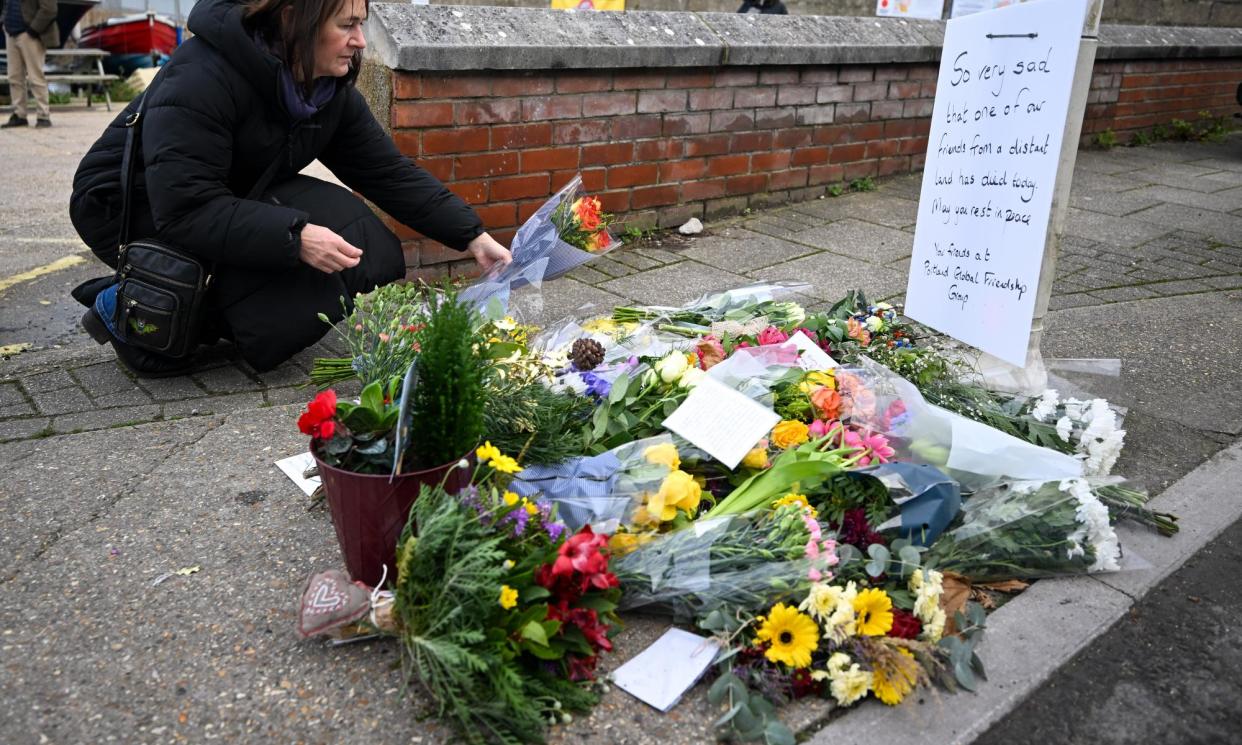Suicides of asylum seekers in Home Office accommodation double in last four years

A total of 23 asylum seekers are thought to have killed themselves in Home Office accommodation in the last four years, more than double the total in the previous four years, the Guardian has learned.
According to research shared with the Guardian, 23 people are confirmed or suspected to have died by suicide between 2020 and so far in 2023.
Between April 2016 and the end of 2019, 10 people are thought to have killed themselves, according to freedom of information data. In further data from 2020 until August 2023, 19 people are thought to have died by suicide, and since then, a further four asylum seekers are believed to have brought the total to at least 23.
The new data, obtained by Liberty Investigates, has emerged just days after an Albanian asylum seeker, Leonard Farruku, was reported to have taken his life on the Bibby Stockholm barge which is moored in Portland, Dorset.
A total of 176 people have died in government asylum seeker accommodation from a variety of causes as of 27 August this year, according to Home Office freedom of information data. A further four deaths in the remaining months of 2023 – all of which are thought to have been self-inflicted – have come to light, bringing the known toll to 180.
In February 2022 a 25-year-old Eritrean killed himself at a train station. In August last year a 29-year-old Iranian died after having applied for asylum 14 months earlier.
More recent cases include those of Irakli Kapanadze, 37, found dead outside his asylum hotel in Wakefield on 14 September this year, and Rima al-Badi, a 21-year-old from Oman, who is said to have taken her own life on 1 September 2023 after more than a year in a Home Office hotel.
Related: Investigations launched after death of Albanian man detained by Home Office
On 13 October 2023, 63-year-old Victor Hugo Pereira Vargas, from Colombia, was found with apparently self-inflicted wounds in his hotel room in Hailsham, East Sussex. A Sussex police spokesperson said his death was “not being treated as suspicious”.
Hotel staff had witnessed Vargas “visibly distressed” two months earlier on 16 August, according to reports. He asked them to ring the police as he wanted to leave the UK and go anywhere except his home country.
On 11 September, he complained to staff of being unable to sleep for three days, and was booked for a GP mental health appointment. After failing to turn up for breakfast, security personnel broke into his room, which appeared to be barricaded from the inside, and found him dead.
One asylum seeker who was living at the same hotel said: “We were so shocked about what happened to Victor. He used to go down for breakfast at 7am the same time as me. But one morning he just didn’t appear. None of us were given support or counselling to help us deal with this.”
Graham O’Neill, the policy manager at the Scottish Refugee Council, said the revelations pointed to something “badly wrong … in what is a juggernaut of institutional accommodation affecting over 50,000 refugees.
“This is accommodation where room-sharing is increasingly required of often traumatised people left to exist in the severest poverty of £1.25 a day and not allowed to work. One consequence is plummeting mental health.”
A spokesperson for Clearsprings Ready Homes, one of three private companies that has contracts with the Home Office to provide asylum accommodation, including at the property where Vargas died, said: “For data protection reasons we cannot comment on individual cases, however we are always saddened to hear of the death of any individual in our accommodation.
“The wellbeing of service users housed by us is always of primary concern. We work closely with a range of organisations and professionals who offer further support to those who need it.”
A Home Office spokesperson said: “The welfare of all those in our care is of the utmost importance. Any death in asylum accommodation is a tragic event, and will be subject to investigation by the police and coroner.
“We work continually to ensure the needs and vulnerabilities of those residing in asylum accommodation are identified and considered, including those related to mental health and trauma.”
In the UK and Ireland, Samaritans can be contacted on freephone 116 123, or email jo@samaritans.org or jo@samaritans.ie. In the US, you can call or text the National Suicide Prevention Lifeline on 988, chat on 988lifeline.org, or text HOME to 741741 to connect with a crisis counselor. In Australia, the crisis support service Lifeline is 13 11 14. Other international helplines can be found at befrienders.org


